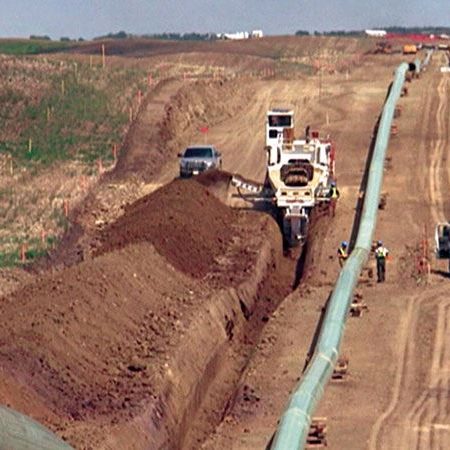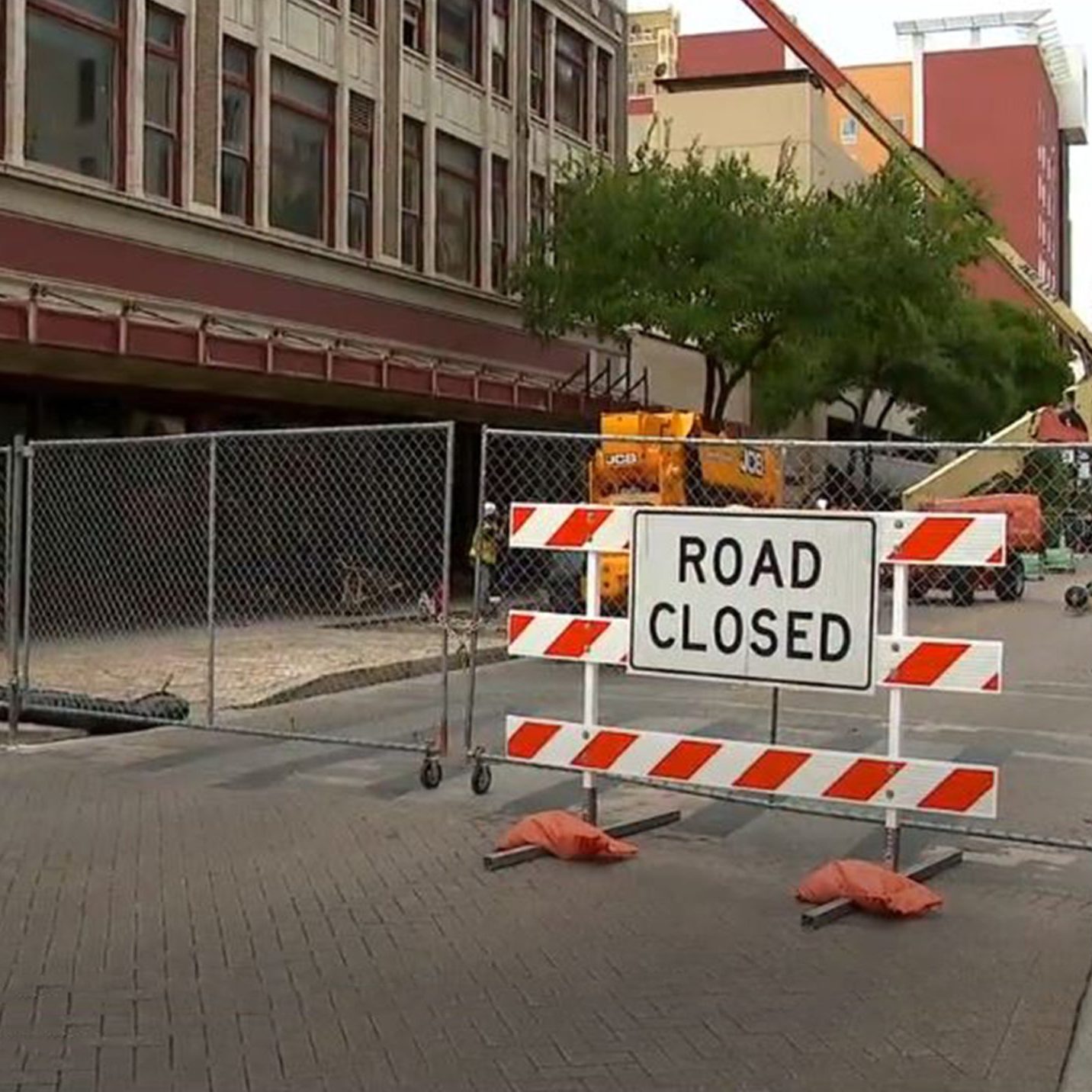
By Tian Su at Texas A&M University
The Boom
Between 2023 and 2024, Central Texas, particularly around Austin and San Antonio, witnessed a four-fold increase in data center construction, totaling 463.5 megawatts (MW) of potential demand under development. This surge positioned the region as the second-largest data center market in the U.S., trailing only Northern Virginia ().
Notable developments included $500 million, 180,000-square-foot data center and a 13,000-square-foot flex office space at 2351 Innovation Blvd, located at the intersection of SH 130 and West US 79 in Williamson County, and in Cedar Creek. These projects not only spurred local economic growth but also significantly influenced land markets. The demand for tracts of land suitable for data center development led to increased land sales, particularly in areas with access to reliable power and fiber infrastructure.
Why Texas?
The state’s vast land availability, business-friendly regulations, and relatively affordable power (compared to coastal states) make it an attractive location for major tech firms and hyperscale operators. Beyond these practical benefits, Texas has several other key advantages that are fueling this growth:
- Central time zone: Texas’s central time zone offers an edge for global operations. For the most part, the state is also inland, meaning there are fewer risks from hurricanes, earthquakes, or coastal flooding. That geographic safety makes for more stable uptime guarantees, which are promises providers in data centers make to keep their systems stay online and operational almost all of the time.
- Proximity to key infrastructure: Texas is a prime location for data centers due to its robust infrastructure, including a vast network of highways, fiber optic cables, and access to critical power grids.
- Abundant renewable energy: Texas leads the U.S. in wind power and is rapidly scaling solar, which makes it a prime location for energy-hungry data centers looking to meet sustainability goals (). For sustainability-conscious companies like Microsoft, Meta, and Google, this makes Texas a prime destination to hit decarbonization targets.
- Lower Operating Costs: Compared to coastal tech hubs such as Silicon Valley or New York, Texas offers lower overall costs of doing business.
While property taxes in Texas are generally higher than in many other states, some communities offer property and sales tax abatements to attract businesses. Additionally, Texas generally has fewer regulatory hurdles, making it easier and more cost-effective for companies to operate and expand.
Power and Land Demands and Challenges
The Electric Reliability Council of Texas (ERCOT) that peak electricity demand for Texas could reach 218 gigawatts (GW) by 2031, more than double the 2023 record of 85.5 GW. Data centers are expected to account for the largest percentage of this growth, driven by the energy requirements of artificial intelligence (AI) and cloud computing services.
Meeting this demand will require a major expansion of Texas’ power generation capacity, whether through new renewable energy installations or additional natural-gas-fired plants. Either path carries substantial implications for land use, from sprawling solar farms and wind arrays to traditional power plants and supporting infrastructure.
The demand for land suitable for data center development not only means more sales but also transformed land-use patterns. For example, in the Permian Basin, traditionally known for oil and gas production, companies like are repurposing land for data center sites. These developments are equipped with necessary infrastructure, including power, broadband, and water for cooling, and are strategically located to leverage existing energy resources.
Texas Land Market’s Future
The Trump administration’s policies have played a pivotal role in promoting data center growth in Texas. Announced in January 2025, the Stargate Project is an ambitious $500 billion initiative aimed at establishing a nationwide AI infrastructure. The project plans to construct up to 20 data centers across the United States, with Texas serving as a central hub. These would bring demand for large utility-ready parcels.
The AI revolution isn’t just happening online, it’s being built acre by acre right here in Texas. What began as a quiet tech migration has become a full-on infrastructure rush. In Texas, land is no longer just land—it’s also bandwidth, energy, and scalable infrastructure.
Views expressed on The 338 are those of the authors and do not imply endorsement by the Texas Real Estate Research Center, Division of Research, or Texas A&M University.
Article featured at https://trerc.tamu.edu/blog/ai-land-and-power-inside-texas-data-center-explosion/
Photo: Texas A&M University

By Hailea Schultz with Greater Houston Partnership
The George R. Brown Convention Center (GRB) is set to undergo a major transformation that will reimagine downtown Houston into a pedestrian-friendly convention and entertainment district.
Mayor John Whitmire and Houston First Corporation recently unveiled a master plan for the project, marking the first substantial renovation since 2016, which opened the building to Discovery Green and created the Avenida Houston Plaza.
The $2 billion project aims to bolster Houston’s position as a global hub for sports, entertainment and tourism, an especially timely investment as the city prepares to host FIFA World Cup matches in 2026 and the Republican National Convention in 2028.
The first phase of development includes a 700,000-square-foot building, GRB Houston South, which will serve as a key connector between downtown and Houston’s East End. The building will include two exhibit halls, a multipurpose hall opening to the new Central Plaza, an atrium flex hall, ground-level retail and dining spaces and what is set to be the largest ballroom in Texas.
Additionally, the Avenida Plaza will be extended south to connect Discovery Green with the new Central Plaza, creating an expanded gathering space for large-scale events and community activities.
The project’s design is inspired by Houston’s bayous and natural prairie landscape. Along with its nature-inspired elements, the building will use eco-friendly materials and energy-efficient systems, including rainwater collection and water-saving features, to minimize its environmental impact and strengthen the city’s sustainability efforts.
The groundbreaking project will be funded by a portion of the state’s hotel tax revenue, made possible by Senate Bill 1057, which passed in 2023.
The Need for Expanded Infrastructure
With Houston’s hospitality and tourism industry rapidly expanding, the demand for expanded infrastructure has never been greater. In 2024, the city welcomed more than 54 million visitors, an increase of six percent from 2023 and nearly 10 percent since 2019, according to Houston First.
GRB Houston South is scheduled to open in May 2028, with the full project expected to be completed by 2038.
Article featured at https://www.houston.org/news/george-r-brown-convention-centers-2-billion-transformation-project
Photo: Greater Houston Partnership

By Apple.com
Teams and facilities to expand in Michigan, Texas, California, Arizona, Nevada, Iowa, Oregon, North Carolina, and Washington
Plans include a new factory in Texas, doubling the U.S. Advanced Manufacturing Fund, a manufacturing academy, and accelerated investments in AI and silicon engineering
Opening a New Manufacturing Facility in Houston
Doubling Apple’s U.S. Advanced Manufacturing Fund
Growing R&D Investments Across the U.S.
Supporting American Businesses with a New Manufacturing Academy in Detroit
Article featured at https://www.apple.com/newsroom/2025/02/apple-will-spend-more-than-500-billion-usd-in-the-us-over-the-next-four-years/
Photo: Apple

By Jeff Vasishta
Benzinga and Yahoo Finance LLC may earn commission or revenue on some items through the links below.
Space might be Elon Musk‘s ultimate goal, but he’ll make do with a large chunk of Texas in the meantime. According to The Real Deal, the richest man in the world owns $3.4 billion of Texas real estate, which houses mostly business ventures such as SpaceX, Tesla and The Boring Company but also comprises large swathes of land where he plans to develop self-sustaining towns. Like many former Californians, Musk was attracted to the Lone Star State because of its business-friendly regulatory environment.
Slow Going
Musk’s Southern strategizing became apparent when the Wall Street Journal reported on his plans to build his own town on part of thousands of acres of newly purchased pasture and farmland outside Austin by the Colorado River, where his employees could live for below-market rents. It has since been revealed that Musk’s new town has been dubbed Snailbrook because of the slow pace of progress.
The 440 acres Musk’s companies own in the area include an 11-acre Starlink factory (that produces internet kits) with amenities for workers and a playground for his children. However, Musk also owns at least 2,500 acres along either side of State Highway 130 and 900 acres in Boca Chica. Currently, the modest prefab homes in an area branded Starbase (SpaceX’s rocket development) are nothing to write home about, but Musk plans to develop the area. There are plans to build a $6M restaurant and a $9M shopping center. An election would allow voters to cast a ballot for a slate of three new city officials, including the city’s first mayor, crucial to the incorporation of a new town. According to The New York Times, the petition suggests that the mayor will be SpaceX’s security manager, Gunnar Milburn.
Starbase, Texas
The Starbase petition describes a community of around 500 current inhabitants, including at least 219 primary residents and over 100 children. The intended location is at the end of State Highway 4 by Boca Chica Beach, close to the launch site of SpaceX rockets. The town is small by Texas standards, about 1.5 square miles.
Of course, the main reason Musk chose Texas was business. The state’s large swathes of undeveloped land make it ideal for industrial real estate. Musk owns 2.5 acres outside Tesla’s Gigafactory, conveniently close to Bergstrom International Airport. The technocrat’s personal residence is also located there – a $35 million family compound with a Tuscan Villa. 10 miles east of Austin, Musk plans to expand his Neuralink operations – sci-fi-like company that develops brain-computer interfaces (BCIs) that allow people to control devices with their thoughts – with a new office and manufacturing spaces.
Environmental Concerns
Despite a significant Texan presence, the possibility of high-paid jobs, new infrastructure and a booming economy, many Texans aren’t thrilled about Musk’s presence. A community group, Save RGV, filed a lawsuit against SpaceX for releasing wastewater into nearby wetlands. In addition, Musk has to convince local officials in Cameron County of his intentions. There is evidence that Musk might not be content with forming just one town. According to The New York Times, he has investigated the possibility of housing employees in a development outside the town of Bastrop, near Austin, where several of his businesses are located, including a manufacturing plant for SpaceX, the headquarters of the Boring Company, which creates tunneling technology and soon, offices for the social media platform X.
It’s an ambitious venture – but when has that ever stood in Elon Musk’s way?
Photo: CRE Daily

By Dug Begley with the Houston Chronicle
With the end of 2024 came the end of two major freeway projects around the area, when all lanes opened at the Interstate 69 and Loop 610 interchange and along Interstate 10 in Brookshire to the Brazos River.
New lanes, however, are always a work in progress. The Texas Department of Transportation and others are constantly adding lanes or adding travel options – some more complex than others.
The work either intensifying or wrapping up in 2025 is no different, with major progress expected on both Interstate 45 south toward Galveston and the Ship Channel Bridge.
Looming, however, is more than two decades of work starting in downtown Houston and then plodding north to rebuild I-45.
Be sure to check back regularly for updates on how these projects develop.
Article featured at https://www.houstonchronicle.com/projects/2024/houston-road-construction-projects/
Photo: Yi-Chin Lee, Staff Photographer

By Mary Cantrell with The Big Bend Sentinel
BREWSTER COUNTY — Last Thursday the Texas General Land Office (GLO) closed on a historic deal to purchase a massive 353,785-acre ranch in Brewster County from Texas Mountain Holdings, owned by Brad Kelley.
The “Brewster Ranch” was listed for $245,678,330. An assemblage of 28 historic ranches, the property complex lies primarily east of Highway 385. It abuts the 801,163-acre Big Bend National Park, 103,000-acre Black Gap Wildlife Management Area and the Rio Grande.
“It’s big, it’s Texas, and it’s wild,” states the property listing.
Kelley spent over 25 years amassing the expanse, according to James King of King Land & Water, who represented Texas Mountain Holdings in the sale. “He’s the anti-fragmentation machine — and that’s the biggest threat in Texas, is fragmentation of our landscapes — so this is a win for us who are in the conservation arena,” King said.
“It’s really awesome that the land commissioner, the General Land Office, saw the opportunity for the state of Texas to invest in Texas,” King said. “It’s going to be in public ownership.”
When the Brewster Ranch was originally listed in 2019 it was an even larger tract at 431,846 acres. Ranches on the periphery — Horse Mountain, Tesnus and YE Mesa, ranging in listing price from $14 to $26 million — were sold off over time.
King said a lot of people showed interest in the ranch, but at the end of the day “it’s hard to find a buyer for that large a scale of a transaction.” Entities thought to have a “conservation outcome,” including The Nature Conservancy, Texas Parks and Wildlife and the Park Service were in discussions.
“In the end, the GLO is the one who stood up and did the transaction,” King said.
The oldest state agency in Texas, the GLO manages the Permanent School Fund, a fund with over $56 billion in assets that distributes $2.2 billion to public schools annually. The GLO’s investments vary widely, from public lands to oil and gas leases to buildings in downtown Austin to stocks and bonds.
“You name it, they’ve invested,” King said.
In addition to the acquisition of the Brewster Ranch, the GLO recently purchased a 1,402-acre ranch along the Rio Grande in Starr County, which the agency intends to erect a 1.5 mile border wall on, according to a press release. While no official plans have been announced for the Brewster Ranch, Land Commissioner Dawn Buckingham offered the following statement to The Land Report.
“As Texas Land Commissioner and the steward of more than 13 million acres of state land, I am proud to have acquired this beautiful property for the State of Texas,” Buckingham said. “By securing this large swath of land along our southern border, the GLO is not only blocking foreign adversaries from purchasing this land but also ensuring this mineral-rich property will be generating revenue for the school children of Texas.”
Brewster County Judge Greg Henington said while he has been in touch with the GLO and the commissioner regarding the ranch acquisition, “they have not been clear about what they are going to do with it.” He said as far as he was aware no final decisions have been made.
Henington did express concerns about the estimated $90,000 in lost property taxes. “From my perspective, it’s like, okay, here’s another piece of public land coming out of my county and going off our tax rolls,” Hengington said. “I’ve been kind of working with the GLO to say, ‘Okay, well, how can you help us, so to speak.’”
King said Texas Mountain Holdings — the ranch’s previous owner — leased land out to various parties for ranching operations, and it is likely that the GLO will continue that practice for the time being. “They’re probably going to utilize that same strategy for maybe a year until they get an understanding about what they really have and what the potential uses are down there,” King said.
The GLO has an office in Alpine, and other land holdings in West Texas, including Lake Ranch south of Marfa and a ranch in the Quitman Mountains south of Sierra Blanca. “They know the business of managing land, and they know the business of working with lessees on leasing that land,” King said.
Article featured at https://bigbendsentinel.com/2024/10/30/land-office-purchases-massive-353785-acre-brewster-ranch/
Photo: Laurence Parent

By Julie A. Cohn with Baker Institute
Framing the Issues
On Jan. 14, 2025, the Texas Legislature will once again gather in Austin for its biennial regular session, and electric power will once again catch the attention of lawmakers. Between now and then, Texans can look forward to a long hot summer and the early weeks of winter. How will the power grid do?
Following the disastrous Winter Storm Uri in February 2021, freezes and heat waves have kept Texans focused on the power system and questions of reliability. In 2021, the legislature passed several measures to harden the Texas grid against freezes and to improve communications with customers and between state regulatory agencies. In 2023, the legislature adopted measures to finance new dispatchable energy resources. While these actions have improved grid resilience in the face of hard freezes, vulnerabilities lie ahead, and lawmakers are sure to debate how to address them.[1]
At least six different developments are unfolding to affect the reliability of the Texas Interconnected System, operated by the Electric Reliability Council of Texas (ERCOT) and the regional distribution networks operated by regulated utilities:
- Summer and winter weather extremes: Texas is experiencing unprecedented weather throughout the year: deep freezes annually across the state, spring heat waves, record-breaking sequences of high temperatures during the summer, disastrous storms, and short shoulder seasons.
- Intertwined natural gas and electricity networks: While there are tight dependencies between natural gas production and electric power generation, the two networks are regulated by different state entities.
- Expansion of renewables and congestion on transmission lines: Wind and solar installations are located in regions of the state far from centers of electricity use, and the transmission lines in between are experiencing congestion.
- New electricity demand: Electric vehicle (EV) recharging is on the rise, while cryptocurrency miners, AI data centers, and microchip manufacturers, among other industries, are coming to Texas. All require large quantities of electric power, adding to the need for more installed generation very soon.
- Increases in variability of electricity generation and reliability challenges: As the share of renewables increases, variability increases, and this requires sufficient dispatchable generation for reliable service.
- Isolation of the Texas grid: Members of the U.S. Congress are pushing to connect Texas either to the Eastern or Western Interconnection.[2]
Each of these developments poses challenges to the stability and reliability of the Texas grid, and all have historical analogs, both regionally and nationally.[3]
Developments To Watch
Summer and Winter Weather Extremes
The planners for the Texas grid have important questions to address regarding anticipated weather extremes:
- Will there be enough energy?
- Will power be available when and where it is needed?
- Is the state prepared for extreme weather events?
- Are regional distribution utilities prepared for extreme weather events?
Texas is not alone in facing these challenges as other states have likewise experienced extremely hot and dry summers, wildfires, polar vortexes, and other weather conditions that have tested their regional power systems. While system operators in Texas and elsewhere may be improving preparations for the next unusual weather system, it is difficult to imagine and model every contingency.[4] Much like the unanticipated cascading power failures of the late 20th and very early 21st centuries, unprecedented weather extremes have taken grid planners by surprise in recent years.[5] Following major blackouts, the utilities hardened the grid, strengthened coordination, adopted new operating standards, and, eventually, acquiesced to federal oversight of reliability. Following Winter Storm Uri, grid planners in Texas and across the country reassessed their demand projections, and regulators called for improved winterization of power systems. But are the safeguards introduced during the prior two legislative sessions in Texas adequate to prepare for future weather emergencies? The state managed through the extreme cold that gripped Texas from Jan. 14 to 17 in 2024, which may bring a sense that the grid is ready. However, that event was not as extreme as Winter Storm Uri, so the grid has not yet been tested to the same extreme.
More recently, spring and summer storms have caused widespread and lengthy power outages in Houston and other areas, which is also related to the resilience of distribution networks. This has introduced new concerns about preparedness and recovery that have rightly attracted the attention of state leaders. Proposals to address distribution level failures include burial of power lines, replacement of older and weaker aboveground infrastructure, and enhanced tree and brush trimming requirements. Wealthier Texans are taking matters into their own hands by installing generators and energy storage batteries as backup power options. Meanwhile, policymakers will continue to weigh various proposals that could impact broad ambitions for increased electrification. Underneath it all is a set of fundamental questions whose answers will ultimately dictate next steps, such as: How can Texas best assure a reliable and resilient power system, even as weather and storm patterns shift? What will it cost? Who will pay for it? And through what mechanisms?
Intertwined Natural Gas and Electricity Networks
Reports investigating the causes and effects of Winter Storm Uri revealed the very tight interdependencies between natural gas production and distribution networks and between electric power generation and transmission networks. While some natural gas production and distribution equipment froze, Winter Storm Uri is not the first time producers have experienced wellhead freeze-offs. In fact, natural gas volumes in storage should have been sufficient to blunt the worst of the impacts on production. But a critical failure in coordination contributed to the disastrous failure. Compressor stations along natural gas pipelines need power to function. But natural gas pipeline operators had failed to identify themselves as critical load, which would have ensured that they continue receiving power during forced outages. No power to compressor stations meant no gas could move in the pipelines. No gas moving in the pipelines meant no gas was available to power plants. The intertwined nature of gas and power is now well understood by different stakeholders, so hopefully Uri served as a wake-up call. Regardless, these shortcomings contributed to the lengthy forced outages on the Texas grid, and there appears to have been very little coordination between the various actors in the gas and power systems, particularly at the regulatory level.[6]
Looking back at more than 140 years of electrification in the United States, we see other examples of intertwined energy networks, including coal and power during World War I, access to hydroelectricity for war production during World War II, and shifts in generation resources during the 1970’s energy crises, to name just a few.[7] Electrification has always depended on continuous access to sufficient energy resources. During Winter Storm Elliott in 2022, shortcomings in the integration of gas and electric power systems on the East Coast again exacerbated tenuous grid conditions. In Texas, in 2021 after Winter Storm Uri, the legislature established committees and councils to bring about gas and power coordination.[8] But separate state agencies regulate each industry, and the ways in which they are integrated are relatively opaque. Thus, the question remains: How well are the intrastate gas and power networks working together today?
Expansion of Renewables and Congestion on Transmission Lines
Texas now leads the rest of the country in the installed capacity of both wind and solar power generation. Most of this capacity is in the western, northernmost, and southernmost parts of the state — areas of low population and lots of windy and sunny days. There is potential for much, much more — with combined wind and solar capacity due to increase by more than 30% in the next year.[9] But ERCOT is already curtailing production on occasion when wind and solar generation are very high because the transmission network is simply not large enough in the right places to move this renewables-based electric power to the users in the central and eastern parts of Texas. It is a chicken-and-egg problem: Should investment in generation follow transmission, or should investment in transmission follow generation?
The 2005 Competitive Renewable Energy Zones (CREZ) initiative illustrates that legislation establishing new renewables targets, creating priority investment zones, and defining transmission corridors can succeed at addressing this chicken-and-egg problem.[10] The question currently facing the legislature, as was the case in 2005, is whether to promote more renewables and transmission, more traditional generation and colocation with power users, or some combination of both. Beyond that, if the state intervenes, how should this be accomplished? With the experience of CREZ behind us, we can see that a wide array of issues will be at stake: cost and the funders, speed of transformation, environmental protection, new demand, landowner rights, and grid reliability. Resolution will not likely be quick or easy.
New Electricity Demand
Texas offers a very attractive home for a wide array of power-hungry industries — including cryptocurrency mining, AI data centers, logistics centers, and microchip manufacturers, plus growing EV charging. ERCOT is already predicting a greater than 25% increase in demand over the next 10 years, with peak demand increasing by 78%.[11] At the same time, some of these electricity users are ideal candidates for participating in demand-side management programs on the grid. That is, without severely harming their own production, they can halt their electricity demand from the grid during short periods to help balance generation and load. In fact, this can be profitable for them. But a central question remains: Where will these emerging economic drivers for Texas obtain their electric power?
At various points during the last century, the need for more power, quickly and in certain locations, drove innovation — especially expansion of power pools and methods to operate interconnected power plants continuously.[12] Today, emerging technologies that range from energy storage devices to grid-connecting devices may increase grid efficiency, and innovations may produce similar effects on the customer side of the meter. While the elected officials in Austin court new industries and tout the state’s benefits, they are also likely wondering if there will be enough electricity, and where and when it will be available. Just as importantly, it is important to understand whether current market frameworks inhibit or enhance technical innovation. These questions are already on legislators’ minds, as evidenced by various interim charges.[13]
Increases in Variability of Electricity Generation and Reliability
At the same time that demand for electricity increases in Texas, and intermittent renewable capacity grows, there has been little recent investment in dispatchable sources of generation. As an ongoing trend, this threatens to undermine grid stability. Both the variability of wind and solar power and the fact that neither provides inertia to support the balance of load and generation on a grid are problematic. While options are available to remedy both intermittency and inadequate inertia, policy decisions at the highest level will influence whether generators, transmission companies, and the grid operator adopt new approaches.[14] From investment in new dispatchable generation and energy storage capacity, to new long-distance transmission, to encouragement of siting generation close to load centers, the future stability and reliability of the Texas grid can be improved. How the legislature takes up these issues will frame Texas’ potential for continued economic health and growth.
Isolation of the Texas Grid
It is not uncommon for explanations of the 2021 power outages to cite the isolation of the Texas grid as a factor. While it is true that the outages lasted longer in Texas than in the surrounding states, it is also true that neighboring regions experienced electricity shortages as well. Texas does have small, direct-current links to the Eastern Interconnection and to Mexico, but these lines were curtailed periodically throughout the week of the winter storms. We do not know what the electricity landscape might have looked like had Texas utilities built and maintained interconnections with the eastern or western grids over the past 80 years. We do know that efforts to achieve this in the 1970s failed, and studies completed shortly before and after that time forecast additional costs and reliability concerns for Texas power customers. Members of Congress recently proposed bills to require development of these links. With federal legislation on the table, Texas legislators may seriously reconsider what connection (using direct current lines) or interconnection (using alternating current lines) might mean for the state. Complex technical, infrastructural, land use, governance, reliability, and economic issues abound. But it would not be beyond the scope of the legislature, the Public Utility Commission (PUC), ERCOT, and the industry to apply their collective knowledge and research abilities to help all of us understand whether isolation is beneficial or detrimental for Texas power customers.
Closing Remarks
In summary, there are several developments across the power generation landscape that have potentially major implications for ERCOT. Notably, while ERCOT is highlighted here, many of these issues translate to other regions. So, other regions will likely take note of what legislators and market regulators do in Texas. In the end, successful resolution of the various issues will carry significant benefits for existing Texas industrial, commercial, and residential consumers and have implications for the longer-term economic attractiveness of Texas. Suffice it to say, eyes will be, and should be, on the Texas legislature in the coming session.
Article featured at https://www.bakerinstitute.org/research/what-horizon-electricity-texas
Photo: Unknown

By Pipeline & Gas Journal
(Reuters) — Natural gas prices in the Permian shale basin in West Texas turned negative a record number of times so far in 2024, including on Wednesday, as pipeline and other constraints trap gas in the nation’s biggest oil-producing basin.
Spot gas prices for Wednesday at the Waha hub in West Texas turned negative for a third time in July even as a record-breaking heatwave could boost U.S. power demand to an all-time high later this week as homes and businesses crank up their air conditioners.
Analysts say that is a sure sign the region needs more gas pipes, which has already prompted Kinder Morgan, Energy Transfer and other U.S. energy firms to propose new projects.
“The only way for prices to stay in positive territory is through new pipeline capacity,” Chad Bircher, lead quantitative analyst on North American natural gas at financial services firm LSEG, told Reuters.
There is, however, only one big gas pipe actually under construction in the Permian at this time – the Matterhorn Express Pipeline – which analysts say is on track to enter service later this year.
“As production in the Permian Basin continues to grow and demand increases, the Matterhorn Express Pipeline’s takeaway capacity provides much needed transport of natural gas to end markets,” Matterhorn Express Pipeline spokesman Cody McGregor told Reuters.
In the past, Matterhorn Express projected the 490-mile (789-kilometer) pipe capable of moving up to 2.5 billion cubic feet per day (Bcf/d) of gas from the Permian to the Gulf Coast, could enter service in the third quarter of 2024, but most analysts now expect the project to start in the fourth quarter.
Matterhorn Express is a joint venture between units of WhiteWater, EnLink Midstream, Devon Energy and MPLX, according to WhiteWater’s website.
“The revision to the construction schedule would delay by several months new natural gas volumes from the Permian and keep prices under pressure in the basin,” analysts at energy consultant East Daley Analytics said in a note.
The Permian in West Texas and eastern New Mexico is the nation’s biggest and fastest growing oil-producing shale basin. A lot of gas also comes out of the ground with that oil.
When oil prices CLc1 are relatively high, like they have been this year, producers are willing to take a loss on gas because they can still make money selling oil.
Next-day prices at the Waha averaged below zero 22 times so far this year. Waha prices first averaged below zero in 2019. It happened 17 times in 2019, six in 2020 and once in 2023.
There were no negative prices in 2021 or 2022 (at least no daily averages below zero) because energy firms built new pipelines, including the Permian Highway and Whistler, to move more gas out of the Permian.
Proposed New Pipes
Although several firms have proposed to build new pipes in the Permian, analysts have said two projects were most advanced — Kinder Morgan’s 0.57-Bcf/d Gulf Coast expansion and Energy Transfer’s 1.5-Bcf/d Warrior.
So far, however, neither firm has committed to build their project.
Kinder Morgan told Reuters “We continue to see interest in the project and are working with potential customers.”
Energy Transfer had no comment beyond what they said on past earnings calls.
“We’re not going to run out and FID (final investment decision) Warrior when we have some capacity on our existing system,” Energy Transfer co-CEO Marshall McCrea told analysts during the company’s first quarter earnings call in May.
McCrea, however, said “There remains … strong interest in another pipeline, probably by mid to late 2026. We are very optimistic that we will build the next pipeline to come out of West Texas.”
Analysts expect Energy Transfer to have more to say about Warrior when it releases its second quarter earnings on Aug. 7.
Article featured at https://pgjonline.com/news/2024/july/texas-needs-more-natural-gas-pipelines-as-prices-turn-negative-again
Photo: Unknown

By Jaie Avila / News 4 San Antonio
Work is progressing on the $550 million Alamo redevelopment plan, projected to bring $2.5 million visitors to our city’s most treasured landmark.
Some nearby businesses are not happy about a part of the project that got underway this week. On Monday a construction crew permanently shut down a portion of one of the busiest streets running through downtown.
The Alamo Trust says the section of Houston Street that runs between Broadway and North Alamo is being closed because it includes portions of the historic mission and battlefield footprint.
“This was the first we heard about a permanent closure of that particular stretch of Houston Street, and that’s concerning to us because we have a lot of customers who come to see us and have to drive over,” said Alexandra Sledge, whose family owns Paris Hatters.
A landmark in its own right, Paris Hatters has been selling hats to locals and visitors for more than a hundred years. Sledge and several other business owners we spoke to say while the renovation of Alamo Plaza has
been in the works for years, they didn’t realize Houston Street would be closed until a flier appeared on their doors just prior to July 4th.
“They did it right before, right in a holiday week, so we got hit with it, couldn’t get a hold of anybody,” Sledge told News 4.
In a statement the Alamo Trust said, ” . . . each business within a 600 ft radius of the Alamo Historic District was notified of this change in 2018 as part of the street closure process.”
The Alamo Trust says it’s used quarterly breakfast meetings, bi-weekly calls and emails to keep businesses updated.
The businesses have been told customers and suppliers will still be able to access them using Peacock Alley; a narrow roadway known for its colorful murals, not its capacity for handling traffic.
“That alley is not wide enough, it probably can barely fit one car, it’s not going to fix big, big trucks,” Sledge said.
Some business owners were angry about city grants mentioned in the fliers, offering up to $35 thousand to businesses impacted by construction.
They were told they aren’t eligible because the business must be at least two and a half years old and construction had to have started before February of this year.
Still, not all nearby businesses are upset with the project, which leaves the sidewalk open on one side of Houston.
“We’re feeling pretty good about it, partially because it’s going to make people walk right in front of our store,” said Theresa Bowen, whose business called Cookie Plug faces Houston Street.
Article featured at https://news4sanantonio.com/news/trouble-shooters/alamo-renovation-closes-stretch-of-houston-st-angering-some-nearby-businesses
Photo: SBG San Antonio

By Adam Zuvanich with Houston Public Media
The national passenger railroad company of the United States, which has taken the lead on a long-planned high-speed railway between Texas’ two largest cities, continues to explore the initiative but also promoted the idea in a video released this week.
The plan for the 240-mile route between the state’s two largest cities, first hatched about a decade ago and recently buoyed by support from Amtrak and political leaders in both the United States and Japan, calls for using Japanese Shinkansen technology in which trains move as fast as 205 mph. Passengers would be able to travel between Houston and Dallas in a matter of about 90 minutes.
“People are just going to be blown away when they experience that. I have been lucky enough to go to Japan and ride it,” Amtrak senior vice president Andy Byford, who leads its high-speed rail development program, said in a Monday video posted on Amtrak’s X account. “The average speed (between Houston and Dallas) will be about 187 mph, which currently would be the fastest average speed in the world.”
The 4-minute video featuring Byford and Amtrak president Roger Harris appears to signal that the national passenger railroad company for the U.S. is committed to seeing the project through, even though Byford cautioned at a Dallas-area rail conference in mid-April that the Texas bullet train was not a “done deal.” He said then that Amtrak continues to use $500,000 in federal grant funding to explore a partnership with Texas Central, the private company that came up with the idea and moved it forward before appearing to stall out in 2022, and will do so for about another 18 months before making a final decision.
But in Monday’s video, Byford said the Houston-to-Dallas route “stands out” as the most feasible and viable corridor in the country for high-speed rail. The video ends with Harris saying, “Let’s go make it happen.”
The video is premature “puffery,” according to John Sitilides, a Washington D.C.-based federal affairs advisor for ReRoute the Route, a coalition of business and civic leaders in Texas that is against the high-speed rail project as currently proposed because the planned path cuts through farm and ranch land instead of being along the existing Interstate 45 corridor that connects Houston and Dallas. He also said Amtrak is sending mixed messages.
“(Byford) says, and I think rightfully so, that he is very open-minded about the project,” Sitilides said. “He’s looking to learn as much as he can about the project. After they complete their due diligence, they’ll decide whether or not this is a project with which to proceed. But then they issue these types of promotional videos which seem to belie those statements, and it seems as if they’re all in.”
Byford said in the video that the Houston-to-Dallas corridor “ticks all the boxes” for high-speed rail because they are large and fast-growing population centers and have relatively flat topography between them. He also said the other traveling options between the two cities are sub-optimal – driving on often-congested I-45 or flying on airplanes.
Along with having the support of President Joe Biden and Japanese Prime Minister Fumio Kishida, a high-speed railway between Houston and Dallas also has been backed by local elected officials in each city and economic development organizations such as the Greater Houston Partnership. It also has the support of the American Public Transportation Association, with its president and CEO Paul P. Skoutelas telling Houston Public Media in a statement that the “time is now to make transformational investment in our national infrastructure that will provide staying power to drive our economy for years to come.”
“The Dallas-Houston corridor indeed has the characteristics that make a corridor ripe for high-speed passenger rail service,” he added. “It also represents a unique public-private partnership. APTA believes that the transportation investments of today will be the foundation of a forward-looking strategy to establish safe, reliable, efficient, integrated, and climate-friendly alternatives for moving people. America has an opportunity to build a high-performance rail network to position us to overcome economic challenges and compete in the global marketplace in the coming years.”
Before longtime Texas Central CEO Carlos Aguilar resigned in 2022 after land acquisitions and fundraising had slowed, the Dallas-based company secured federal approval for the proposed route and the high-speed technology to be used. Also, the Texas Supreme Court ruled in 2022 that Texas Central had the legal authority to acquire land through eminent domain.
Byford said in mid-April that about 30% of the land needed has been secured for the project, which he estimated will cost at least $30 billion. Further land acquisition amidst opposition by some rural property owners along the route, broad political support and a mix of private and public funding sources will be required to see the bullet train initiative to fruition, he said.
The ability to secure more private funding will be a challenge, according to Sitilides, who said the project has many other flaws. He said the potential impacts on minority communities and conflicts with existing railways are among them, along with the fact that the planned stations in Houston and Dallas are not close to the airports in those regions and, in the case of Houston, not next to downtown.
“We just think that Amtrak is wasting federal taxpayer dollars by putting this first tranche … into these feasibility studies,” Sitilides said. “They’re probably chasing a rabbit hole here. They should be pursuing high-speed projects in other parts of the United States where the topography, the geography and the culture work in favor of high-speed rail. Mr. Byford may have had very good experiences in London, in New York and other major cities, but East Texas is basically car country.”
Byford, meanwhile, says in the video that he sees high-speed rail as the “way of the future” instead of traveling by automobile or airplane. He also described the Houston-to-Dallas corridor as the path that can lay the foundation for other high-speed rail routes around the country.
The video starts with Byford saying, “Let’s get on with it. Now is the magic word.”
Near the end of the video, he adds, “I think in coming years, once we’ve got high speed in on one, maybe two routes, what Americans will say in years to come is, ‘We should have had this years ago. It’s fantastic. Bring it on. Let’s have some more.'”
Article featured at https://www.houstonpublicmedia.org/articles/news/transportation/2024/04/30/485140/houston-dallas-bullet-train-amtrak-video-publicity-ramp-up/
Photo: Shutterstock
